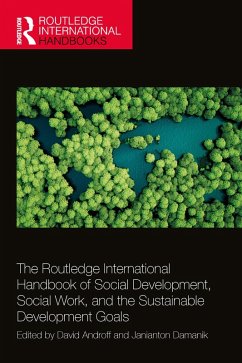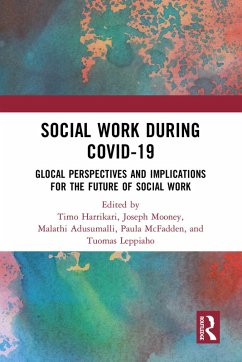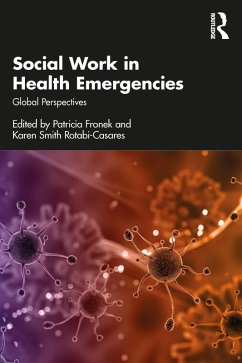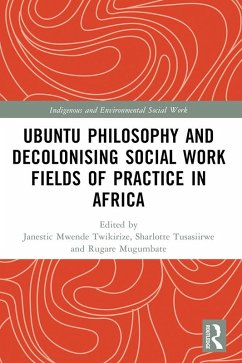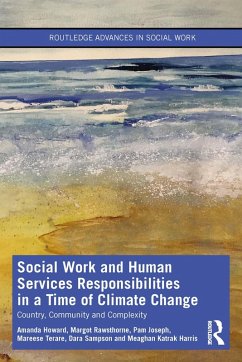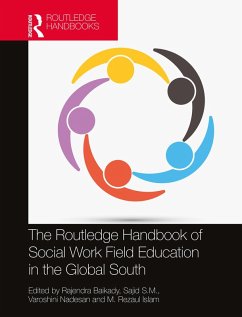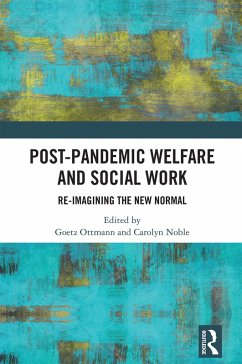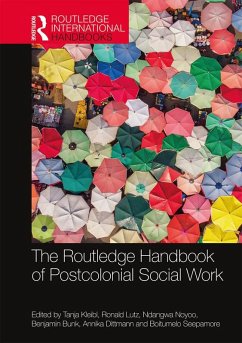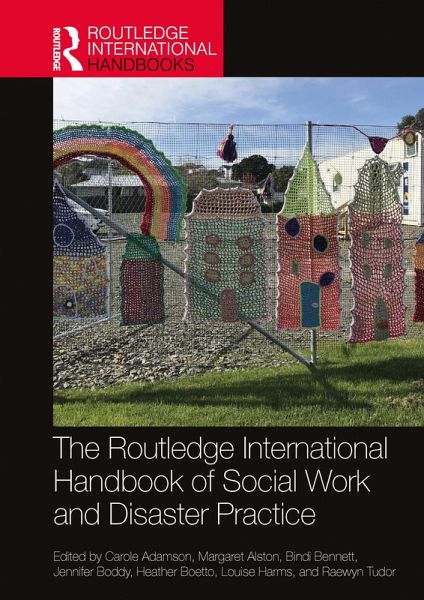
The Routledge International Handbook of Social Work and Disaster Practice (eBook, PDF)
Versandkostenfrei!
Sofort per Download lieferbar
47,95 €
inkl. MwSt.
Weitere Ausgaben:

PAYBACK Punkte
24 °P sammeln!
This handbook addresses the diversity and complexity of social work practice in the context of disasters. Drawing on international perspectives, with the inclusion of case studies, this handbook provides a resource for students, practitioners, educators, and researchers seeking to prepare the social work profession for contemporary challenges associated with disasters.Divided into five parts, it explores the following subject areas:1. Conceptual aspects concerning social work's relationship with disasters2. Social work's role in preventing and preparing for disasters, and response and recovery...
This handbook addresses the diversity and complexity of social work practice in the context of disasters. Drawing on international perspectives, with the inclusion of case studies, this handbook provides a resource for students, practitioners, educators, and researchers seeking to prepare the social work profession for contemporary challenges associated with disasters.
Divided into five parts, it explores the following subject areas:
1. Conceptual aspects concerning social work's relationship with disasters
2. Social work's role in preventing and preparing for disasters, and response and recovery
3. Social work practice with specific populations
4. Social work education and training in disasters
5. Implications for social work organisations and policy
Leading ideas, debates, and approaches from international authors will provide Global North and South perspectives. A critical examination of research and theories for practice, including concepts of human vulnerability and community resilience, will provide the foundation for detailing the practical contributions that social workers can make at the micro, meso, and macro levels of practice. Social work's underpinning value base of social justice and human rights will also be explored in the context of the complex and dynamic nature of socio-cultural, political, and economic dimensions pertaining to disasters.
It will therefore be of interest to all social work students, academics, and professionals as well as those working in allied disciplines, policy, and emergency management roles.
Divided into five parts, it explores the following subject areas:
1. Conceptual aspects concerning social work's relationship with disasters
2. Social work's role in preventing and preparing for disasters, and response and recovery
3. Social work practice with specific populations
4. Social work education and training in disasters
5. Implications for social work organisations and policy
Leading ideas, debates, and approaches from international authors will provide Global North and South perspectives. A critical examination of research and theories for practice, including concepts of human vulnerability and community resilience, will provide the foundation for detailing the practical contributions that social workers can make at the micro, meso, and macro levels of practice. Social work's underpinning value base of social justice and human rights will also be explored in the context of the complex and dynamic nature of socio-cultural, political, and economic dimensions pertaining to disasters.
It will therefore be of interest to all social work students, academics, and professionals as well as those working in allied disciplines, policy, and emergency management roles.
Dieser Download kann aus rechtlichen Gründen nur mit Rechnungsadresse in A, B, BG, CY, CZ, D, DK, EW, E, FIN, F, GR, HR, H, IRL, I, LT, L, LR, M, NL, PL, P, R, S, SLO, SK ausgeliefert werden.




